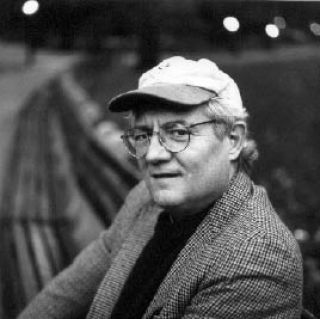With his rich, measured, Southern near-rumble, Roy Blount, Jr. is a natural speaker. But as much as he enjoys it, and as much as it’s contributed to his making a living, it’s not his favored form of expression.
“I love to talk, but I consider it a lower form of expression than writing, he said. “Among one’s family, it’s considered better to talk. But among strangers, you can (convey) more with writing.
“There’s a reason there’s such a thing as writing.”
This assertion will draw writers from around the country to the third annual Field’s End conference, which takes place throughout the day today at Kiana Lodge.
This year Blount is on deck for the keynote address, joining opening speaker Stephanie Kallos and closing speaker Timothy Egan. Sandwiched into the day will be an accomplished grouping of area authors – including many islanders – leading discussions and hands-on workshops.
Attendees who hail from this neck of the woods can only hope that Blount will wax Southern a bit. And if they gaze raptly at his mouth as his Southern accent pours out, it will only solidify discussion of his most recent book, out just shy of a year ago, “Long Time Leaving: Dispatches From Up South.”
“It’s all about being a Southerner in the North, and having people tossing around the term ‘redneck’ lightly, and one thing or another,” he said.
In truth, Blount really did leave his native Georgia a long time ago; he spent summers in New York, attended graduate school at Harvard and was in the Army for two years. After putting in two years with the Atlanta Journal-Constitution, he moved back to New York full-time in 1968, and hasn’t lived in the South since.
“I just always wanted to get up to somewhere where people talked about books and things,” he said. “Now they talk about whether there are going to be books.”
Blount’s upcoming book, “Alphabet Juice,” fulfills a long-time wish to write a word book, and it’s based around the premise that contrary to some linguists’ assertions, the relationship between a word and its meaning are not arbitrary.
“I think Language is a physical thing, and there’s a reason ‘struggle’ sounds like it sounds, and ‘stumble’ sounds like it sounds,” he said. “With ‘stumble,’ you sound like you’re hitting something in the middle. ‘Struggle’ is more drawn-out.
And then there are “heave,” “hem” and “haw” – further proof in his mind that onomatopoeia, writ large, is a built-in part of our written-spoken wiring.
“I’ve always just loved the sound of words, and the feel of words in one’s mouth, and have always tried to write with that in mind, not just for the sake of sound, but to get as much sound into the words as possible,” he said. “People tend these days to be abstract about words, and to ignore how important the sound of the words is.”
Whether that makes Blount a purist, or the opposite, is hard to tell. But he appears willing to give anything a try before making a final judgment.
Back to the topic of the demise of the printed media, for instance, Blount was recently given a Kindle. He wouldn’t have bought the portable electronic reading device for himself, but what the heck.
“I found it a whole lot of fun … because you could sit in the lobby of a hotel and download all these books onto it,” he said. “But I don’t like reading it.”


